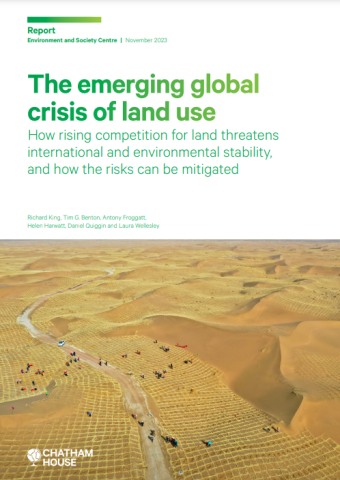Pressures around land use are emerging as one of the defining environmental challenges of modern times. Competition for productive and ecologically valuable land, and for the resources and services it provides, is set to intensify over the coming decades, as growing demand for land for farming, climate change mitigation and other essential uses contributes to a deepening ‘land crunch’.
This report examines the drivers of, and potential solutions to, this emerging crisis. It explores the nature of ‘land wealth’, recognizing that globally important resources are unevenly distributed between nations. Inequalities and tensions will increase if competition between land uses, and land users, is not addressed by policies that acknowledge national constraints without surrendering the ambition to reduce global resource use. Tackling the land crunch is thus an intrinsically global and political problem, dependent on international cooperation.
Ultimately, creating a sustainable, ‘land-wealthy world’ will require transformational changes to land use and its governance. This means reducing humanity’s land footprint, governing global land resources systemically and cooperatively, and changing how land is valued and its stewardship financed. Perhaps most fundamentally, governments must make land an urgent priority, and put in place institutional changes that embed land crunch planning at the centre of domestic, foreign and economic policy.
Download the Chatham House report below.


